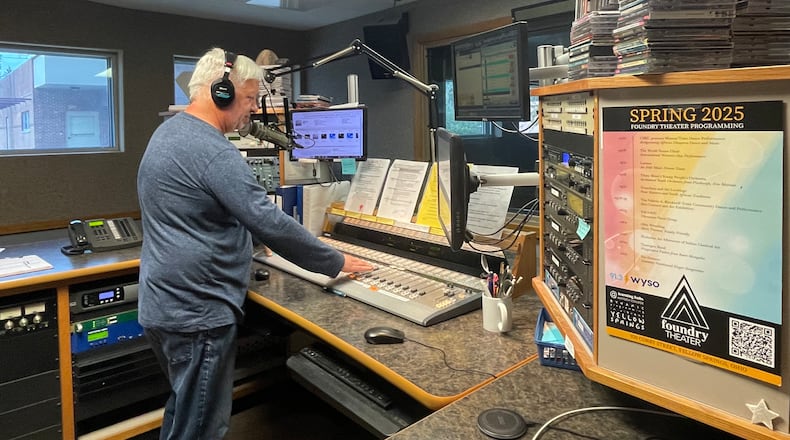“In this region specifically, we are so fortunate to have a rich and thriving music community built on histories of many kinds of music,” WYSO Music Director Juliet Fromholt said. “I’m really proud that the station’s been able to be a part of that for so long, and to think about losing WYSO as a hub, a musical touchstone for people in this community… it’s a really sad thought, you know?"
The CPB is a nonprofit organization created by Congress in 1967 to support public media in the U.S. Congress in July approved rescinding $1.1 billion, or two years of funding, from the CPB.
CPB leaders announced Friday that the group will begin “an orderly wind-down of its operations.”
“CPB remains committed to fulfilling its fiduciary responsibilities and supporting our partners through this transition with transparency and care,” said CPB President and CEO Patricia Harrison in a media statement about the looming closure.
Nearly 1,500 NPR stations received some kind of operating support through the CPB, while roughly 0.01% of the total federal budget went toward the CPB. WYSO itself will see a $600,000 funding cut over the next two years because of the rescission package.
WYSO’s CPB funding, which comes in the form of a community service grant, accounts for roughly 8-10% of the radio station’s operating budget annually. Fromholt said other stations that serve rural communities, though, rely much more heavily on federal support.
Fromholt said the CPB also negotiated and paid for all of the music licensing rights for public media stations. Although some rates were set by the CPB over the next few years, it’s unclear if those rates still have standing, who will be paying for them and who will be in charge of future negotiations.
Last year, the CPB covered $8.7 million in costs related to music licensing for public media stations across the U.S.
“That’s a huge unknown right now,” she said. “This affects all of us.”
But this won’t spell the end to popular national programs like Tiny Desk, Fromholt said.
“Music is essential to the health of a community,” she said. “Music is something that connects us. It heals us, it allows us to share in expression in a way that can transcend words and languages and politics.”
Leaders of Public Media Connect, the regional nonprofit public media partnership of CET in Cincinnati and ThinkTV in Dayton, said the nonprofit was set to lose $2.6 million annually with the rescission package. Public Media Connect serves the Dayton and Cincinnati region and provides programs popular among households, ranging from the “PBS News Hour” to “Sesame Street.”
The CPB, for decades, has supported CET and ThinkTV by maintaining infrastructure for emergency communications and education initiatives, as well as by supporting content development and innovation through federal funding, according to CET and ThinkTV officials.
Public Media Connect officials fear the end of CPB could impact national public media programs aimed at educational access, as well as initiatives to reach rural or diverse audiences.
The funding cuts to public media are a part of a larger purge of the federal workforce and programs. President Donald Trump himself earlier this summer called for defunding PBS and NPR, calling them a part of the “radical left.”
The Associated Press contributed to this report.
About the Author

